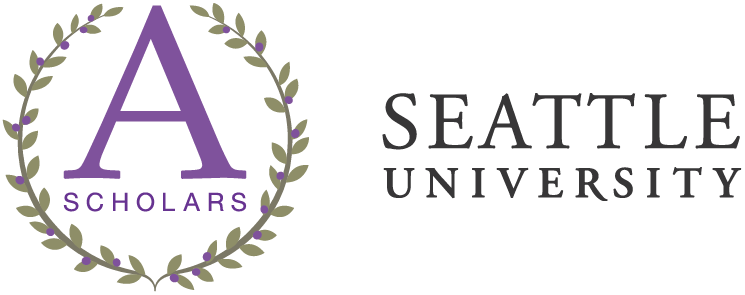Richard Pallangyo
B.A., cum laude, Computer Science, with Minors in Mathematics and in Data Science, 2021
Senior Data Engineer, Mindtree
Student, MS in Data Science, University of Washington, expected graduation 2026
“I intend to fight against inequality, discrimination, violence against women and cultural traditions that discourage dialogue and challenge beliefs and values that disregard women rights in Tanzania and the world.”
Notable: First-generation student, International student; Additional languages: Swahili, Meru
Civility Research Project: How Cultural Traditions Encourage Violence Against Women
Transfer Institution: Seattle Central College, Associate of Science, 2019
Service & Work:
Transfer Ambassador, Seattle University, 2019 – 2021
TFFT Ambassador, The Foundation For Tomorrow, 2020
Social Media Chair, African Youth Coalition, April 2019–Present
Awards & Honors:
Vice President, Tri-Alpha First-Generation Honor Society
Vice President/Financial Officer, African Student Association, 2019 – 2021
Alfie Scholars Cohort 2019
Xavier Scholarship 2019
Phi Theta Kappa Honor Society
Vice President, African Students Association, Seattle Central College, 2018 – 2019
Richard’s Story
I am an international and first-generation college student. I grew up in a small village called Ngyeku in northern Tanzania where it was impossible for me to imagine the dreams I hold dear today. Our community had no electricity and no running water. Firewood was the main source of energy, we had to walk for more than an hour to collect water, and my mother supported me and my five siblings by growing corn and raising chickens. Looking back to those days, the ideas of attaining a college degree and having dreams that will change lives were almost comical to ponder. The course of my life changed in 2008 when an education-focused NGO called The Foundation For Tomorrow (TFFT) took me in, and I embarked on a path that led me to Seattle Central College and, now, Seattle University. Through TFFT, I attended excellent schools in Tanzania and had access to resources that enabled me to advance my academic and leadership skills.
My mother did not have an opportunity to go to school; she wishes she had gotten an education. She emphasized to me from a young age the power that education holds. She reminds me every day of my blessings; thus, I should use my gifts as well as education to help those in need. My mother’s inspiration and the life struggles I have endured have not only strengthened but also emboldened me with purpose. I have been the beneficiary of the generosity of others and witnessed the power of grace in making a meaningful difference in both my life and the world around me. For instance, I am pursuing a degree in computer science at Seattle University through scholarships and support from my host family. Growing up in a house with no running water or electricity, I have been incredibly fortunate and believe it is my purpose to help others who face tremendous obstacles in realizing their own dreams.
I intend to use my gifts, opportunities, and academic skills to help others improve their lives and their community. I will use my leadership skills and gifts to elevate the value of women in my culture through advocacy. Also, I hope to establish a technology school in Tanzania for young people to realize their potential to end the cycle of poverty in their communities.
Advice to someone in high school or community college who aspires to attend a university: You have a heroic mission to serve humanity including yourself. Your life experiences, both good and bad, are so important in discovering your purpose. Value and embrace what you encounter in life, but do not let it hold you back from being who you are. Let your life be meaningful to you and others. Do what fulfills you and serves the world.
Goals:
My career goal is to become a security analyst or a data scientist as I also practice civility
in my work and community to create a better world.
I intend to fight against inequality, discrimination, violence against women and cultural traditions that discourage dialogue, in order to challenge beliefs and values that disregard women rights in Tanzania and the world. I want to engage in discourse and encourage people in Tanzania to be part of the discussions that will protect and uphold human rights, particularly women’s rights.
In Tanzania, I aspire to change lives by building a technology school where Tanzanians can secure the right skills they need to become effective leaders who can impact their lives and their communities through technology. I hope to create tech leaders for civility in Tanzania.
On Civility:
Civility is caring to contribute to a better world for oneself and others. This means being mindful of one’s own actions and how they impact the world. Civility wants one to have and practice awareness, empathy, compassion, kindness and respect not only with oneself but also with those one encounters every day. Civility calls us to be leaders wherever we find ourselves and when opportunities arise by being voices for ourselves and others. Civility teaches us that a better world is a result of caring about an issue that affects us or another human. Civility rejects the notion that if it affects them and not me, then I can ignore it. Civility encourages us to go beyond our differences, treat each other with respect, and solve the world's most challenging problems with great creativity and consciousness for a better world.







